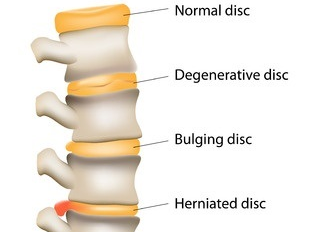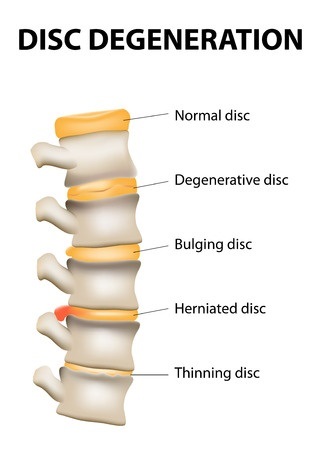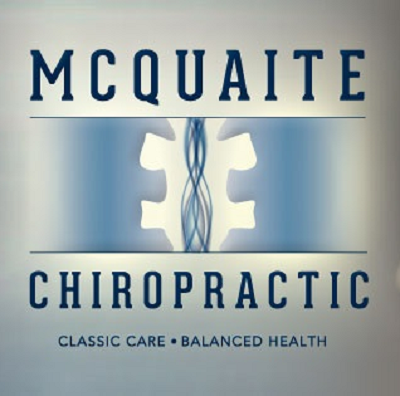
Degenerative Disc Disease: What You Should Know
Degenerative disc disease is one of the most common causes of low back and neck pain, and also one of the most misunderstood. Here are some things you should know.
The term, degenerative does not apply to the symptoms, but rather describes the process of the disc degenerating over time. Many times those with a diagnosis of degenerative disc disease are fearful that the pain will worsen and they will be crippled and confined to a wheelchair; however, the pain from degenerative disc disease usually does not get worse and in fact usually gets better given enough time. This is explained by what is known as degenerative cascade theory.
Kirkaldy-Willis was the first to describe the degenerative cascade of degenerative disc disease. There are three general stages to his theory:
- There is significant dysfunction caused by the acute back pain of the injury.
- Next, there is a long phase of relative instability at that particular vertebral segment and the patient will be prone to intermittent bouts of back pain.
- Finally, the body re-stabilizes the segment and the patient experiences fewer episodes of back pain.
 Another source of confusion is created by using the term “disease,” which is actually a misnomer. Degenerative disc disease is not really a disease at all, but rather a degenerative condition that at times can produce pain from a damaged disc.
Another source of confusion is created by using the term “disease,” which is actually a misnomer. Degenerative disc disease is not really a disease at all, but rather a degenerative condition that at times can produce pain from a damaged disc.
Disc degeneration is a natural part of aging. Over time all people will exhibit changes in their discs. However, not all people will develop symptoms. In fact, degenerative disc disease is quite variable in its nature and severity.
Much confusion also stems from the fact that medical professionals don’t agree on what the phrase degenerative disc disease actually describes. And how can they when the medical textbooks rarely attempt to give an accurate description?
While debate and confusion surround degenerative disc disease, it is important to note that disc degeneration can lead to or hasten the onset of additional spinal conditions. So, it is essential and responsible to pay attention to your back pain and seek medical attention to help with symptoms. Just don’t panic, one or a combination of treatments such as physical therapy, chiropractic treatments or osteopathic manipulation, often provide adequate relief of troubling symptoms.

